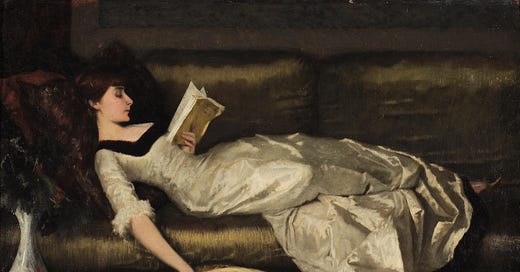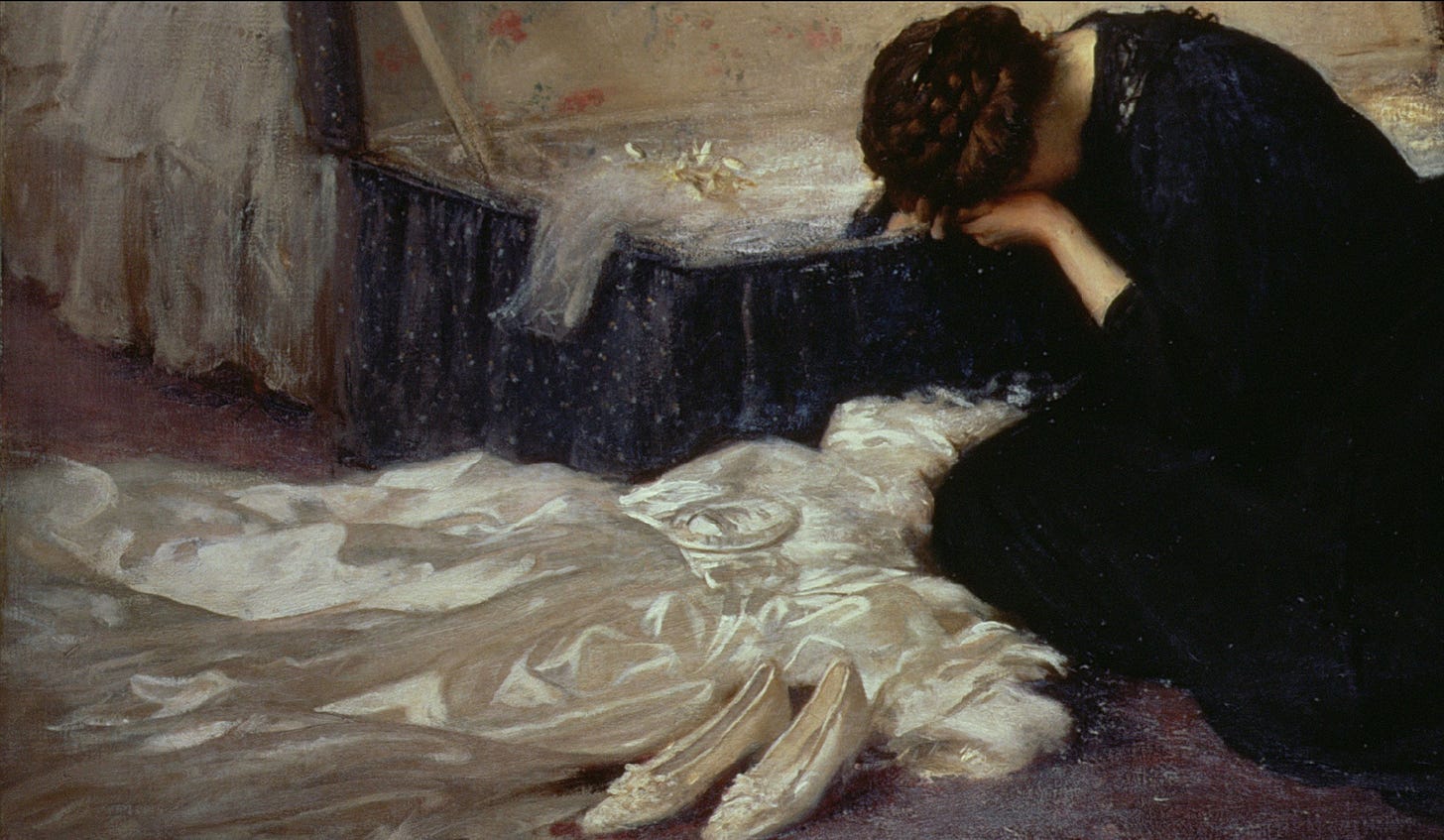archē: on beginnings
an origin story: a reflection on what it means to be a poet with an interest in the law, and choosing which parts of my heart to sacrifice.
Archē (ἀρχή): something that was in the beginning. Or, as Aristotle might define it, an actuating principle. Sometimes, the Boeotian muse of origins and beginnings.
I am poetic and sentimental in the extreme. I want to be a lawyer. I am told to pick one or the other. Consider this my official introduction to you—my incongruence. The way I stick out like a sore thumb in the field I love.
Enter me: ballet flats, ribbon-adorned braids, skirt lined with lace. Chipped pink nails clutching a penguin classics paperback; annotations and frenzied analyses within its pages, haphazard sticky tabs and penciled lines. Half-written poetry in my back pocket. Shakespeare in black ink loops on my arms. Bits of Auden printed at the back of my mind, ready to spring forth. An arsenal of trivia about Oscar Wilde, loaded like a missile.
Or, at least, what I presented at the surface. You could probably see literature in the turn of my mouth.
Everyone had assumed I’d go into some tragic, half-dead field aching for fresh bodies, clinging on to its previous grandeur. A philosophy scholar. An unemployed classicist. A literary academic. Crumbling, beautiful things like marble statues in museums, vestiges of another time that had dripped them in jewels. It was my destiny, conjured from some collective oracular dream. Ruin woven in the blood of it, the ichor of long-dead gods. Ruin woven in the blood of me.
I didn’t want ruin in my blood.
At the tender age of fifteen, I decided I would read law.
Part of it, of course, was a budding interest. But another part of it was a pressing realisation that the things I loved would not sustain me, unless I was very lucky and very talented. I was neither. Call me tainted by the utilitarianism of modern day, the greed of capitalism—but I knew if I didn’t switch tracks, fast, there was a high chance I would end up washed up somewhere in a HR department, dreaming of could-have-beens.
It didn’t take me very long to find a passion for law. My flair for the stage and the dramatic—what allowed me to do drama and poetry orations—was very barrister-like. My obsession with philosophy coincided beautifully with jurisprudence. My fascination with the Classical period lead to a sustained interest in Roman law. My love for ethics linked neatly to Torts. I honed this passion, fed it and nurtured it. I enjoyed learning about the law; I could see myself reading it for three years, and practicing it for longer.
To be fair, I never quite loved the law the way lawyers were supposed to. I loved it in an academic sense. I approached the law as a philosopher, a historian, a classicist would; not as a lawyer would. Legal academia excited me. There I was, back to square one. Law—a stereotypically lucrative field—had somehow crumbled back into obscurity under my touch, a reverse-Midas of the job market.
Even worse, were the reactions to my interest in the law. The first time I’d told a friend about it, she’d looked surprised. “You’re serious.”
“I am.”
“I can’t imagine you there. What happened to all the… literature stuff you wanted to do? Writing?”
“I never said I wanted to,” I said. “Everyone just assumes it.” I did want to. I just knew I couldn’t.
“Well,” she said, “I think it’d be too stressful for you. You’d crumble. You’re more of an author type. Very dreamy.”
And that was the end of that. It was disheartening, but I tried not to show my disappointment.
Another time, I was met with laughter. “I can’t imagine it,” another friend said, mirth in her eyes. “You, the bar exam… I really can’t.” At the downward twist of my lips, she reassured me. “But it’s cool. I’m sure you’ll grow into it.”
And, even worse than disappointment: guilt. A teacher of mine examined me; I felt like her gaze could prick into my brain. “It feels like a waste of talent, all that creativity. Going into law.” I was fairly proficient at creative writing for my age, regularly winning awards for competitions. Her voice had a particular trembling quality that made everything she said have a reverent air; the false weight she gave to my achievements made me feel profoundly ashamed.
And it was a waste. I was the very picture of a budding young scholar of the arts and the humanities. I felt penitent for not sustaining them, and opting into the rat race instead. The dreamy temperament I harboured—which, really, is detrimental to every career path but creative writing—didn’t make me a particularly suitable candidate for law. But I was nothing if not stubborn. On my sixteenth birthday, I remade myself.
I sunk into it, the rat race. The competition. I signed up for scholarships, extracurriculars, mentorship programmes. Law-related essay competitions. Debate club. Anything that would prepare me as a budding barrister. I set my sights on Oxbridge law. I buried myself in schoolwork with a fierceness that would’ve scared the past version of me. I spoke up in every class, worked to be the loudest in the room (because if I wasn’t the smartest, at least I could appear so). That easy, confident air that barristers exuded—I worked to emulate it, to get over the layers upon layers of social anxiety and soft-spokenness built up since birth. It was as if overnight, that stammering wallflower who did just enough had been evicted.
I told someone who was only acquainted with this new, shiny version of me about my aspirations in the legal sector. “Yeah, that makes sense,” they answered. “You work hard.”
Vindication.
Yet I miss her—the old version of me—more than I should. The way people saw her, the way poetry was woven in her bones. Her softness. I still keep her tucked in my chest pocket. I still try to look like her, the ribbons and the lace and the Shakespeare, just now with fire in her eyes and better eyeliner. But I know somewhere between fifteen and sixteen, a fundamental part of me was lost, left behind in metamorphosis.
Sometimes, I yearn for it like a phantom limb.
But in this new phase of life, this quiet crawl towards seventeen, I want both versions of myself. I want both law and poetry, both rhyme and reason. They’re achingly similar; if not, I would’ve never found beauty in either. This newsletter is, partly, a way for me to reclaim that. To marry and meld the two great loves of my life.
It’s a journey; I invite you to take it with me.
Welcome, dear reader, to poiesis by yours truly.







This is so beautifully written. I will be here reading every single letter.
P.S.: I'm here from Tumblr.